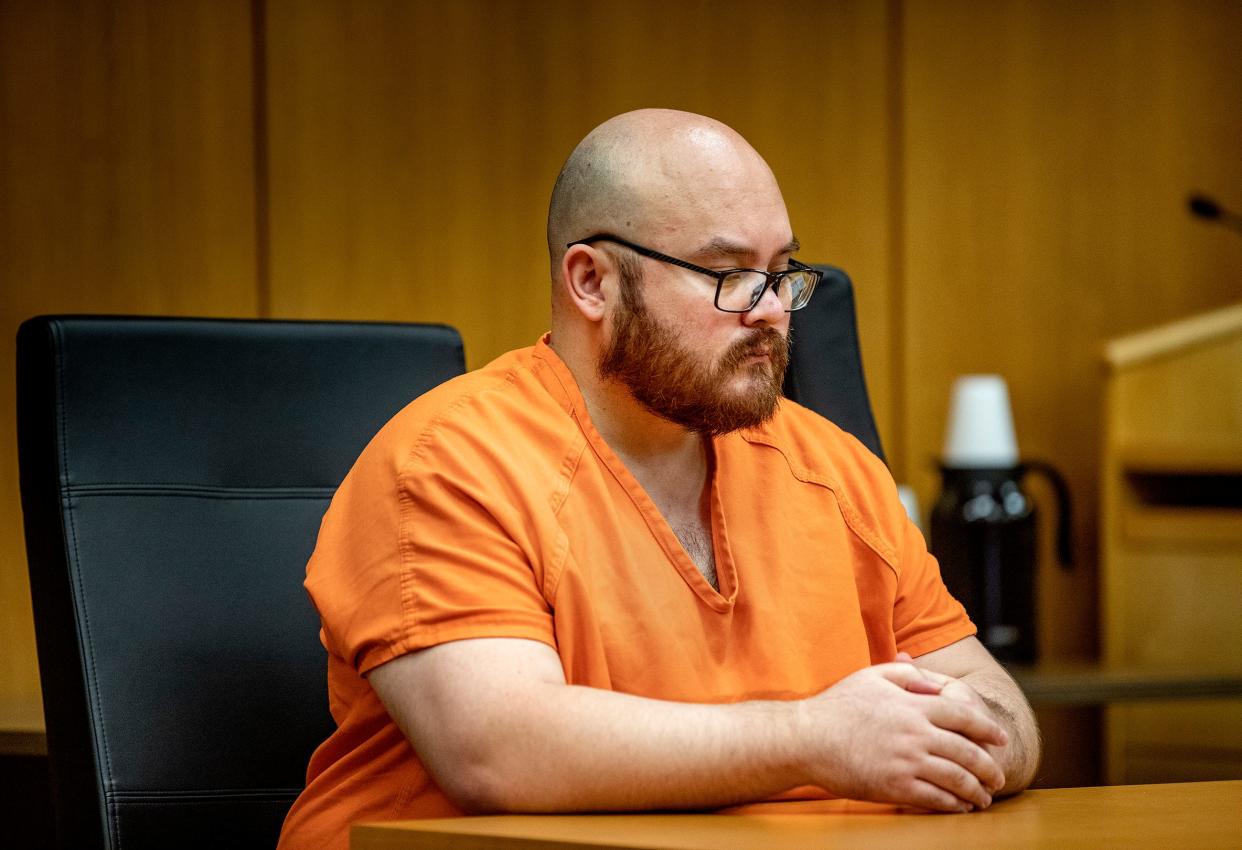Judge rules jury must be unanimous on death penalty in Lakeland quadruple murder case

- Oops!Something went wrong.Please try again later.
The jury to be convened next year for the Bryan Riley quadruple murder trial must come to a unanimous decision in order to recommend a death penalty should he be found guilty, a judge in Polk County has ruled.
But the ruling issued by Circuit Judge Kevin Abdoney on Wednesday in the 10th Judicial Circuit might not be the final say on the matter.
By email on Friday, Assistant State Attorney Jacob Orr said, “We are appealing that order.”
His colleague and prosecutor on the case, Lauren M. Perry, filed a motion to use Florida’s new law that allows a judge to impose the death penalty after a jury vote of 8-4. Previously, state law required a jury to be unanimous in recommending capital punishment.
But after Nicholas Cruz, the gunman who killed 17 and wounded 17 others at a Parkland high school in 2018, received a life sentence on a 9-3 jury vote last year, Florida lawmakers passed House Bill 555 in this year's legislative session, and Gov. Ron DeSantis signed it into law.
Riley is accused of killing four members of a North Lakeland family in September 2021. The crimes occurred before Florida changed its threshold for a death sentence.
The prosecutor had already asked for the death penalty and then filed a motion for the judge to consider a recommendation of a death sentence if the jury verdict is returned with a 8-4 majority.
Abdoney cited rulings by the U.S. Supreme Court and other case law about the Constitutional protections contained in the “ex post facto clause,” his ruling showed.
According to the Robin Maher of the Death Penalty Information Center, “The framers considered it to be very important. They wanted to make sure that individuals have fair warning of the laws that are going to apply to them.
“And they also want to prevent legislatures from passing laws specifically to punish people; that retroactively punishes someone greater than the punishment he would have received at the time of this crime," Maher said.
The Florida legislature made it more likely someone would receive a death sentence and that is not fair to the defendant, Maher said after reviewing the Abdoney ruling.
Previously Judge in North Lakeland killings trial rules prosecution can have suspect's medical records
The state argued there is no violation of the ex post facto clause because there is no significant risk the defendant would receive a significantly greater risk of the death penalty nor more onerous sentence.
Still, Maher said there is a history of discussions in the Florida legislature that was introduced in court cases showing “the legislators were in fact trying to do exactly that. They were trying to increase the possibility that more people would be sentenced to death by lowering the threshold.”
She also said nationwide that 28 or 30 exonerated death row inmates were originally sentenced to death after a non-unanimous jury decision.
This article originally appeared on The Ledger: Death penalty verdict must be unanimous in Lakeland quadrulple murder

